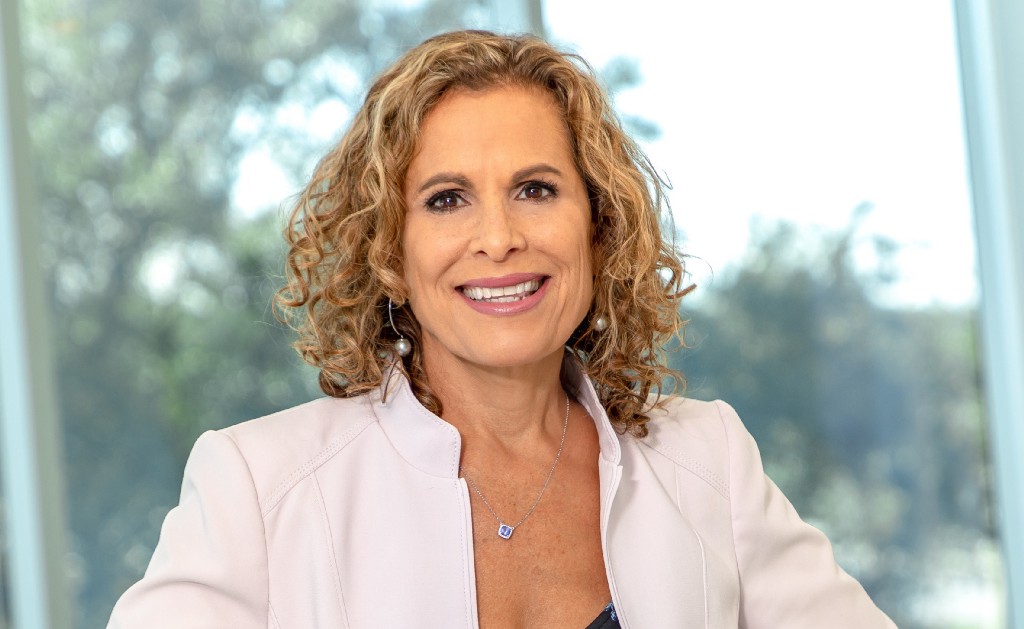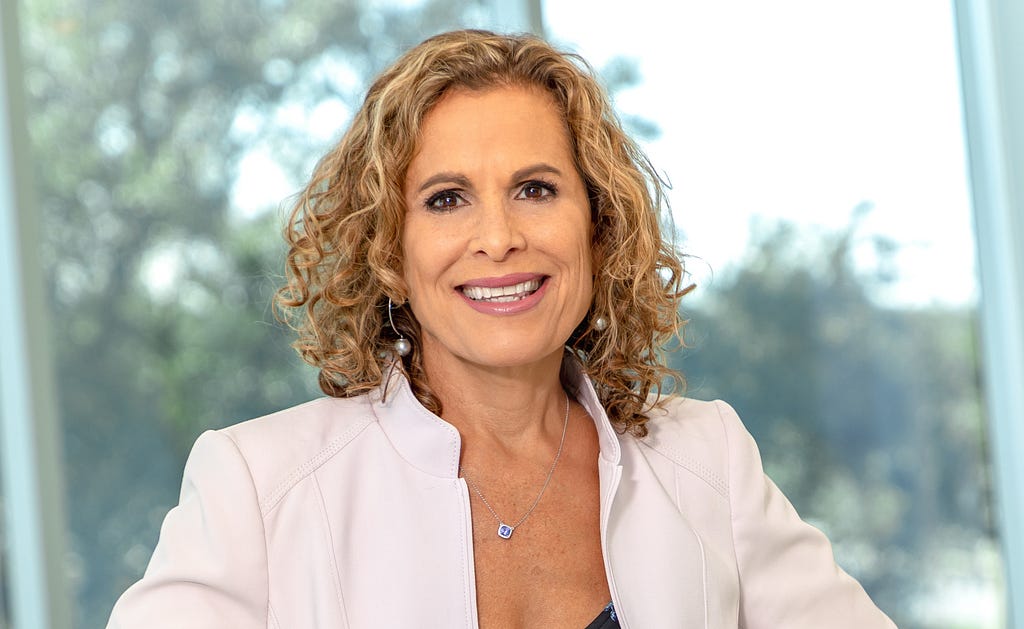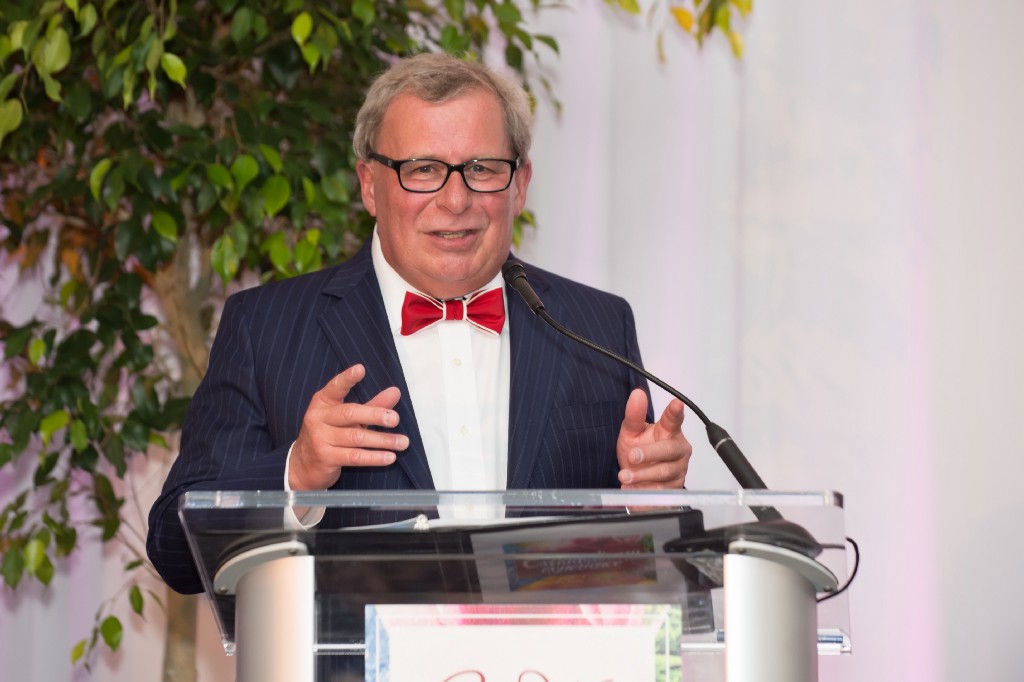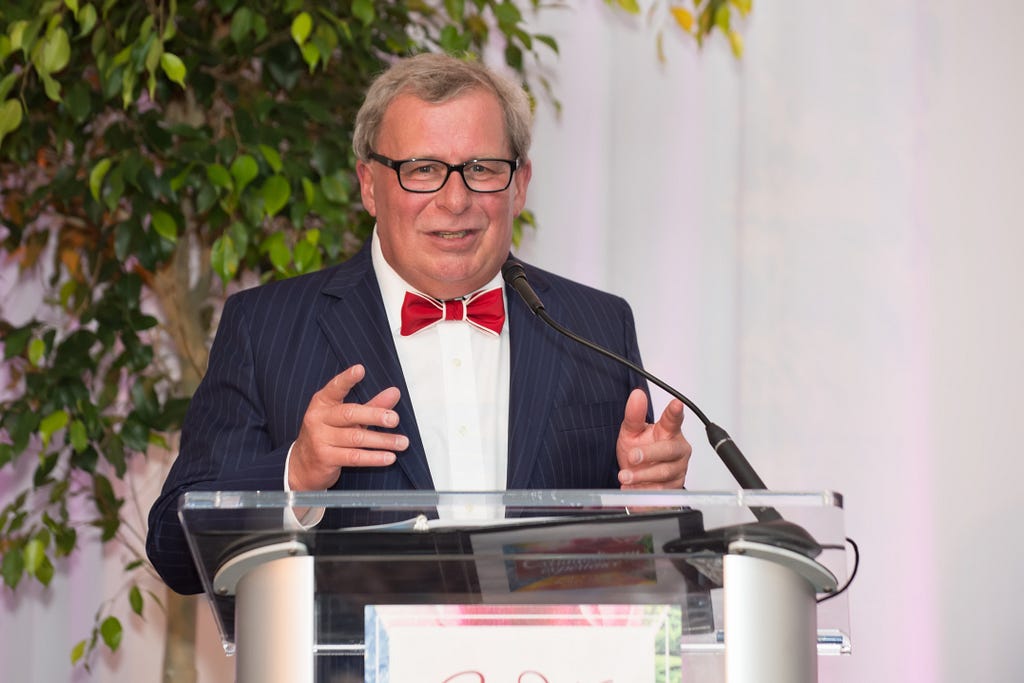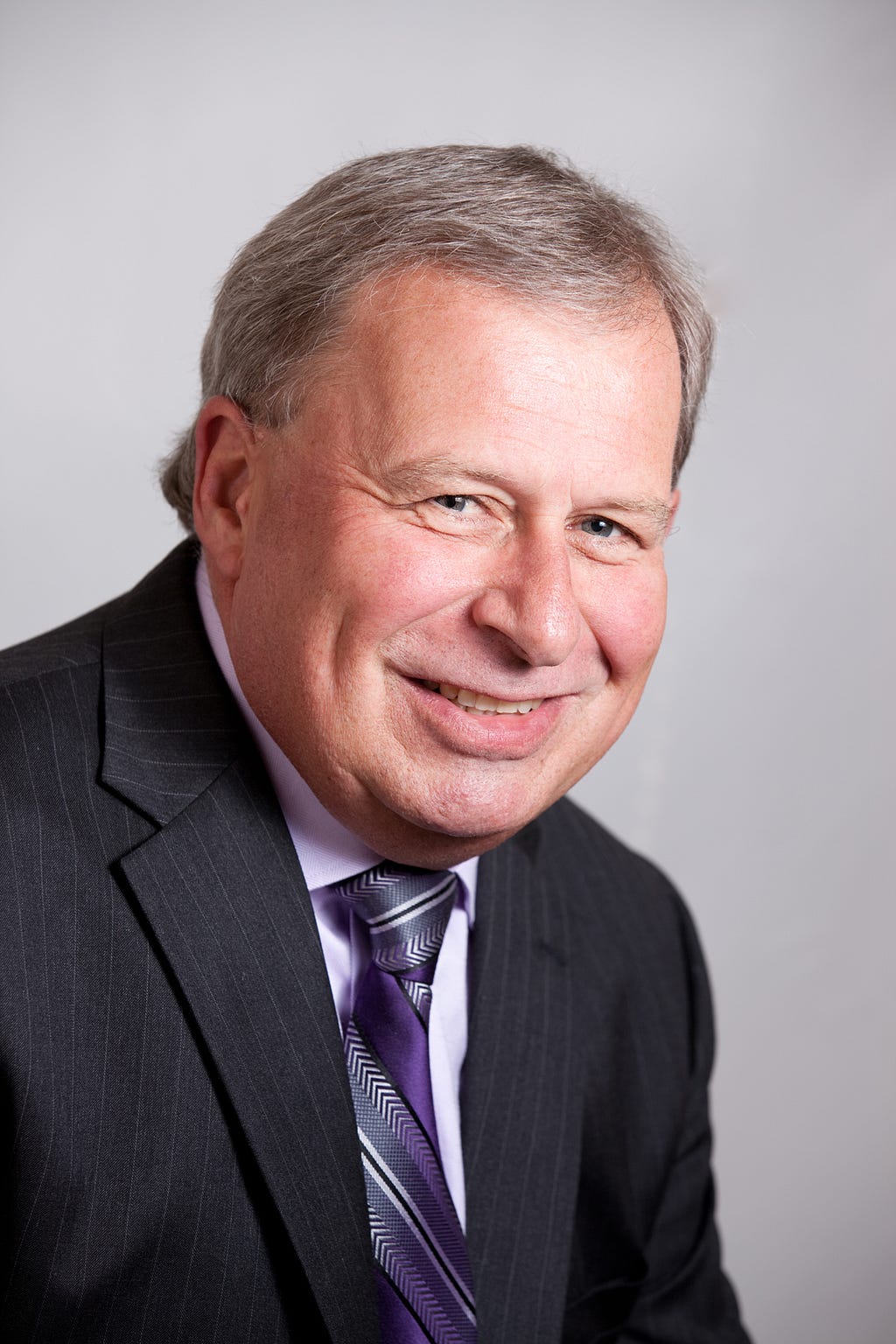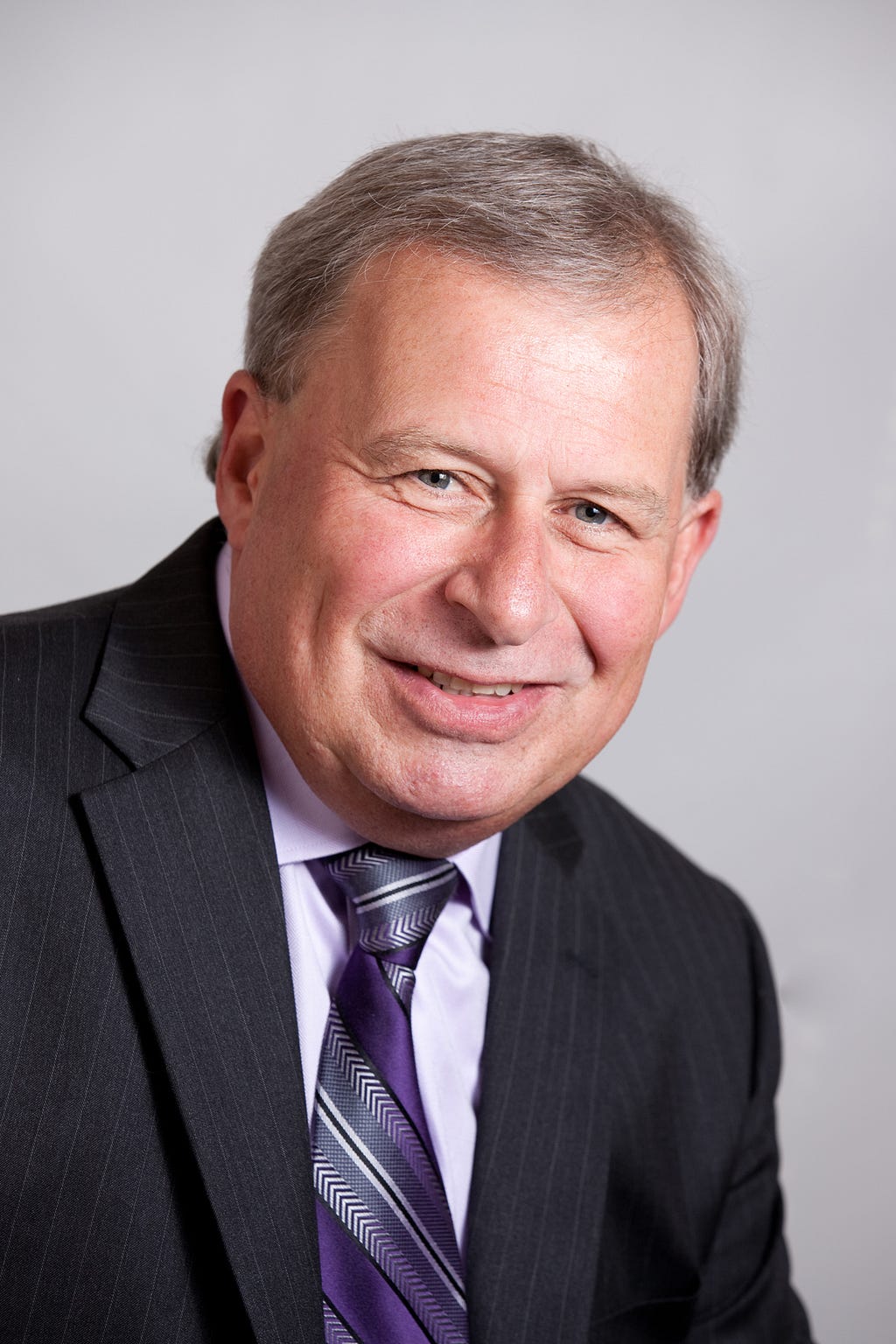The Future Of Travel: “Hotels are moving in the direction of public open floor plans to accommodate locals looking for a place to work” With Jill Kaye of the Chicago Athletic Association Hotel & Candice Georgiadice

Co-Working. It’s no secret that hotels are moving in the direction of public open floor plans to accommodate locals looking for a place to work and lounge to making the guest feel like a local through your atmosphere.
As a part of my series about “exciting developments in the travel industry over the next five years,” I had the pleasure of interviewing Jill Kaye, Director of Programming at the Chicago Athletic Association hotel in Chicago, IL. Originally an elite men’s social and sporting club built in 1893, the hotel building itself is a celebrated Venetian-Gothic icon on Chicago’s famed Michigan Avenue. Following the original Chicago Athletic Association club’s closure, the building underwent an extensive three-year restoration and opened its doors to all as a luxury boutique hotel — no membership required. Milk Room was discovered by a worker during restoration, and is just one of seven drinking/dining destinations within the Chicago Athletic Association Hotel. Sporting 240 rooms, hotel interiors were designed by Roman & Williams. Original architectural details throughout the property were retained and mixed with modern nods to the building’s past.
Thank you so much for joining us Jill! Can you tell us a story about what brought you to this specific career path?
Initially, I was drawn to large scale productions and installations for creative brands and entities like staple Chicago music festivals to parties pushing the boundaries of guest experience. Years ago, I was brought on to help build out an empty warehouse in Chicago’s West Loop neighborhood, adjacent to a train yard for a really swanky brand that hadn’t opened it’s brick and mortar location yet. Inside, clusters of people were working on massive installations which from a distance looked like piles of junk. Fast forward to the launch party for the space, and I had to pinch myself looking at what we had created, how it came together. But it was at that launch party inside the warehouse watching guests have the time of their lives when I knew I wanted to curate cultural programming.
Can you share the most interesting story that happened to you since you started your career?
Helming a programming department within a fast-paced hotel (with seven restaurants and bars, and over 17,000 square feet of event space), there are constant variables we have to adapt to in order to execute large scale events and experiences for guests. In one such case, we transformed an entire hotel floor into a completely different universe: and in 2017, when our annual Halloween party at the Chicago Athletic Association hotel had to move locations within the property with little notice, we had to get incredibly crafty with where we were going to house upwards of 500 people in order to be able to keep up with our tradition of throwing an immersive experience without disrupting the general business of a hotel. We decided to close down the hotel’s rooftop restaurant and bar, Cindy’s, and take over the guest suites on that floor — the 13th floor — the terrace, and the restaurant. This would end up being the largest installation and production of my career to date. With an all-star team of creatives from interior designers to projection mapping artists, we built a new universe, and gained a wealth of knowledge from a one night production in the process
Can you share a story about the funniest mistake you made when you were first starting? Can you tell us what lesson you learned from that?
When we first opened our pop-up Roller Skating Rink within the hotel (housed in the building’s historic gymnasium calle Stagg Court), I admittedly had little idea how to handle a full blown skate rental operation. Our system was skate rental system was clunky; we had lines out the door; and we didn’t realize there was a different between shoe disinfectant and shoe “spray” — who knew! I took what I learned from the first night of the Roller Skating Rink, and came back the next day and completely re-did the system with what I had. Moving forward, I never planned or executed an event again without mapping the physical guest journey from front door, to event, to departure.
What do you think makes your company stand out? Can you share a story?
The Chicago Athletic Association hotel is no ordinary hotel establishment — the building is a Chicago landmark, long closed to the public since its completion in 1893 for the World’s Fair in Chicago, but has only been opened to the public as the institution it is today since 2015. To say that we are a cultural hub in Chicago feels like a gross understatement because there is so much to see, learn and do inside our walls.
For one, the history and architecture never cease to capture the imagination of hotel guests, and local neighbors alike. We attract such a diverse crowd seeking a wide array of experiences: from the freelancers getting cozy in our looby space Drawing Room, to the out of town guests who stay with us regularly, to the locals we see at all of our events. And it takes more than one visit to take it all in. Since the hotel opened, we have all worked under the same General Manager and from the top down, our staff is incredibly creative and free. I think back on this “crazy idea” to build a roller skating rink inside our historic gymnasium, Stagg Court, which after 3 years turned into a marquee quarterly program we produce here at the hotel.
Which tips would you recommend to your colleagues in your industry to help them to thrive and not “burn out”? Can you share a story about that?
My biggest advice would be to keep traveling, and keep your vacation days sacred.I take work/life balance seriously. It sounds lofty and expensive, but I’ve gotten good at using my resources to plan a new trip for myself every month. Through it all: keep learning from other cultures, keep talking to different walks of life, and keep yourself inspired by the way people live their lives. Every time I return to the office, I’m wearing rose tinted glasses with all kinds of new ideas.
None of us are able to achieve success without some help along the way. Is there a particular person who you are grateful towards who helped get you to where you are? Can you share a story?
The first person to take a chance on me without experience is Anna Cerniglia, a gallery owner in Chicago’s West Town. She started consulting for the Chicago Athletic Association hotel, where she brought me in to help with the hotel’s first Halloween party. During that event, I had freedom of expression and a ton of fun. I knew that the building and the people there were special. She shared with me after that the program was growing beyond her schedule and let me know they were in talks to hire a full-time Programmer. Three and a half years later, I’m still here.
Let’s jump to the core of our discussion. Can you share with our readers about the innovations that you are bringing to the travel and hospitality industries?
While many hotels today are putting on programs and events onsite, the Chicago Athletic Association hotel’s pillars are rooted in expansive cultural moments — from dinosaur bone-digging with a Paleontologist from the Field Museum, to enjoying Lollapalooza artists performing in intimate hotel locations during festival week. We strike a dynamic balance between having fun, continuing education, and inspiring our guests. We’ve also bolstered some serious partners in the Chicago community, and we wouldn’t be as successful as we are without them.
Which “pain point” are you trying to address by introducing this innovation?
The Chicago Athletic Association hotel has a unique history, as it was a men’s-only private club for 114 years. Today, we are working to flip the script by being an inclusive and diverse place to meet, eat, drink, and play. Most importantly, we create an environment where guests can choose their own adventure within our walls where we are redefining what it means to be a hotel in the 21st century. We have a lot of fun, we make personal connections with our visitors, and we make lasting impressions.
How do you envision that this might disrupt the status quo?
We’re going to see a lot more hospitality projects activate differently; be it hotel programs, or be it an adoption of the latest tech. In lifestyle travel, we’re all striving to offer the most unique experience while finding that key balance of hands-off / hands-on with the guest. We’re entering an age of truly authentic, curated moments.
Can you share 5 examples of how travel and hospitality companies will be adjusting over the next five years to the new ways that consumers like to travel?
a. Tech. Travelers are coming to expect that they’ll be ordering room service from their personal phones just like they can at home.
b. Health and Wellness. Hotels are going above and beyond the standard gym to offer personalized sessions with trainers or community partners, and making sure a sense of wellness is integrated into the guests’ entire stay.
c. Amenities. It’s our job to be of service to our guest from the major offerings and restaurants, down to the extremely thoughtful amenities and small touches. A growth in “borrowing” and sharing culture of services and items for hotel guests will continue to grow.
d. Programming. Through the curation of meaningful events and experiences at the hotel, this allows the property to engage guests and leave memorable impressions like never before.
e. Co-Working. It’s no secret that hotels are moving in the direction of public open floor plans to accommodate locals looking for a place to work and lounge to making the guest feel like a local through your atmosphere.
You are a “travel insider”. How would you describe your “perfect vacation experience”?
I’m partial to the hands off / hands on experience. I like to be able to ask for assistance if needed, but I also never want to feel like something is being sold to me. I’ll do minimal research before a trip beyond booking my accommodations so I am forced to talk with the locals. I like to spend my morning doing activities, my afternoon relaxing, and my evening taking that local suggestion for a nice meal and great cocktail. At the end of the day, I want to retire to silky soft sheets, cool air, and a good book.
Can you share with our readers how have you used your success to bring goodness to the world?
We’re in the business of making our partner feel valued and our guest feel good. If at least one guest leaves an event feeling uplifted, or like they’ve learned a new skill, I feel successful.
I’ve been lucky enough to provide a platform to those who may have otherwise not been able to amplify their voice as easily. Our hotel works with a lot of organizations who may not have a big budget or audience yet but are incredibly talented, good people looking to leave a mark on the world.
You are a person of great influence. If you could start a movement that would bring the most amount of good to the most amount of people, what would that be? You never know what your idea can trigger. 🙂
Networking has always been a challenge for me. Everyday, we’re surrounded by millions of people going about their business with a whole cosmos inside of them bursting with intelligence. I want to take the timidness out of asking for help, offering a service, or just being a good listener to a stranger who can rely on your experience to solve a challenge. Humans spend too much time inside their bubble, and I want to expand the horizon. I want to reach out my hand to help someone else out like Chicago — and the Chicago Athletic Association hotel — has done for me.
How can our readers follow you on social media?
Facebook: facebook.com/ChicagoAthleticAssociation
Instagram: @ChicagoAthleticHotel
Twitter: @ChiAthletic
The Future Of Travel: “Hotels are moving in the direction of public open floor plans to… was originally published in Authority Magazine on Medium, where people are continuing the conversation by highlighting and responding to this story.



